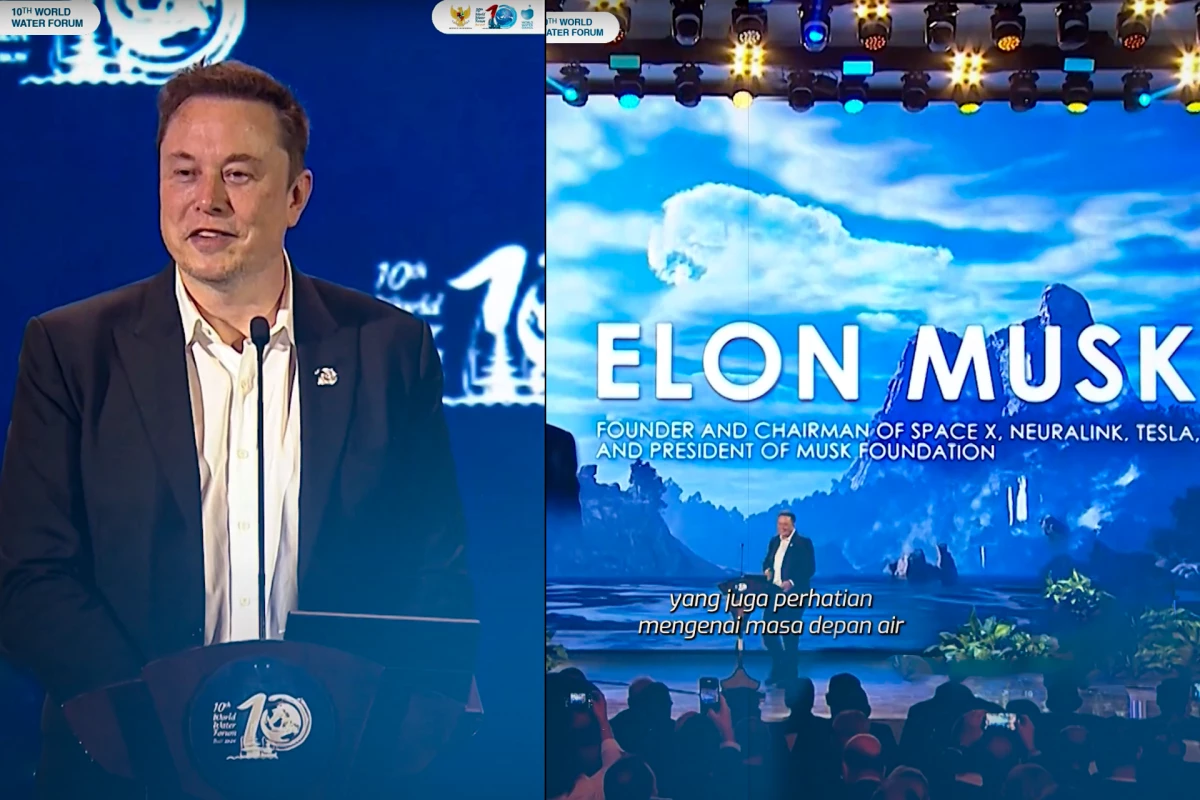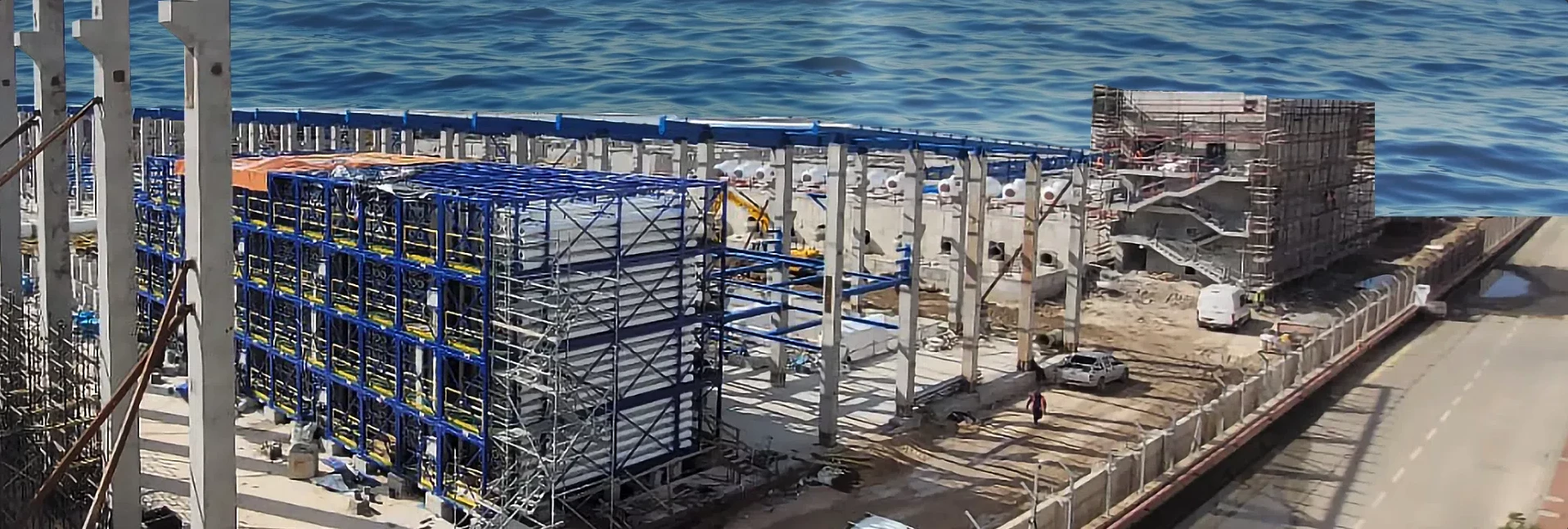To briefly outline the crisis in question, the UN Water group puts it this way:
- Water is a finite resource in growing demand
- Climate change is making water scarcity worse, and more unpredictable
- 2.3 billion people already live in water-stressed countries
- About 4 billion people (half of humanity) experience severe water scarcity during at least one month of the year
The World Water Forum, held every three years, is the world's largest international gathering on the topic, drawing together tens of thousands of world leaders and politicians, academics, civil servants, business and non-profit representatives, not just to participate in the event, but to work on collective action and share results.
"Sustainability of water resources has become a pressing issue for the world," writes Indonesian President Joko Widodo, in a welcome message to the Forum. "Global water needs have increased sharply, in line with population and industrial growth. Meanwhile, the availability of quality and sustainable water is increasingly difficult due to environmental degradation and climate change."

Elon Musk swung by this year's Forum for a brief presentation and Q&A session, as part of a trip promoting the use of Starlink's satellite internet services to bring connectivity to remote areas.
His message was simple, clear, and typically optimistic: water shortages have technological solutions, and those solutions are now affordable. Water scarcity is "very solvable," and any studies that suggest otherwise are likely obsolete, and based on outdated pricing. Here's an edited, cut-down transcript of his presentation, including some answers to audience questions.
"Earth is 70% water by surface area," stated Musk. "Technically, if aliens came here – and a lot of people think aliens have come here, they're always asking me about aliens – they would name us 'Water,' because we're 70% water, and only 30% land. so what that means is the potential for solving any given water issue is extremely good, because there is so much water.
"There's desalination required at times, and the transport of water. But desalination, as I think most people know, has become very inexpensive. So the availability of fresh water is really about energy and transport.
"When I talk to even very well-read, very smart people in the United States, they'll often think the water crisis is unsolvable. But in fact, it is very solvable. We have continuing breakthroughs in the efficiency of desalination, and I think we've got a great water future ahead of us, and a great sustainable energy future ahead of us.
"The exact solution will vary by country, or even by regions within a country, but the cost of desalination has dropped so much that if you're just talking about water for individual consumption, or water in, say, a hydroponics facility, where you're not simply putting it on the ground for crops, but you have some sort of contained facility that minimizes the amount of evaporation, I think you can basically turn any part of the world green, including the entire world.
"It just begs the question of where does the energy come from? And here's where I think solar energy is very much underestimated in terms of its capability. If you do the rough math, to power the United States, which is a heavy user of electricity, it'd take less than a 200 km (124 mile) by 200 km solar array to power the entire United States. Another way to think of it is, a small section of the Sahara desert could power all of Europe, or the world.
"I'm not saying you'd be so concentrated in the placement of solar power, because it's better to be more distributed, but the sheer magnitude of solar power that is available is often not quite understood. The math of it is very clear.
"The cost of solar power has dropped dramatically over the years. If you were to look at the price of solar power five years ago, or 10 yeas ago, or 20 years ago, it would've seemed cost-prohibitive. But the cost of solar power today is extremely low, and the cost of batteries to store the energy has also dropped dramatically.
"The cost of battery storage of electricity has dropped by a factor of 10 in the last five years, so many of the studies that were done in times past, when batteries were very expensive and solar power was very expensive... So I'd encourage everybody to basically take another look at the cost of solar and the cost of batteries. I think you'll find you're pleasantly surprised."
Enjoy an edited-down version of the speech here:
Elon Musk Reveals Plan to Solve World's Water.
— Farzad (@farzyness) May 20, 2024
Here's an edit of @elonmusk's recent speech at the 10th World Water Forum. This version removes pauses & dead space, saving time by 40%.
Thanks @DavidCarbutt_ for the edit! pic.twitter.com/Fb7ukrhQIV
Checking the math
Let's take a look then... Does Musk have a point here? Well, solar energy is definitely killing it on price. As Renew Economy pointed out in December last year, the Levelized Cost of Energy (LCoE) of solar crashed by a remarkable 88% between 2010-2022, to a point where it's 29% lower than the cheapest fossil fuel alternative.
And how about desalination technology? Well, efficiency-wise, that's certainly come a long way since 1970, when according to the International Water Association the best technologies required 20-30 kWh of energy per cubic meter (264 gallons) of water. The standing Guinness World Record for desalination efficiency was set in March 2021 by the Saline Water Conversion Corporation (SWCC) in Saudi Arabia, which uses a reverse osmosis technology to produce 5,000 cubic meters (1.32 million gallons) of fresh water a day using just 2.271 kWh per cubic meter.
As for pricing, Israel's new Sorek B desalination plant is expected to come online this year, using a similar reverse osmosis technology but handling 134 times the volume of the Saudi SWCC plant. Sorek B is contracted to produce this water at a remarkable US$0.41 per cubic meter, which Israel claims as "a new benchmark for seawater desalination water prices on a global scale."

So certainly, on the surface, the indicators all look positive.
Perhaps the missing element here is CAPEX. That new Israeli plant might create fresh water at bargain-basement prices, but according to IDE Technologies, the developer, the up-front capital needed to get this project up and running was around US$600 million.
Not such an issue in wealthy nations like Israel and Saudi Arabia, which have access to easy capital. But look at the second-largest country in Africa, the Democratic Republic of the Congo, where 54% of the 105 million-strong population lack basic water services and some 64% live in extreme poverty according to World Vision. $600 million worth of up-front CAPEX must look very different in a country with an annual GDP under $700 per capita – and that's on top of whatever the solar arrays and other infrastructure would cost.
So Musk is right, the technology is there, and it's affordable enough to roll out at scale – in developed nations with plenty of cash, where water scarcity is generally less of an issue anyway. This isn't a tech problem, it's a very familiar money problem – and while it might be an easy one for a techno-optimist like Musk to overlook, it's a towering issue blocking progress for developing nations.
Source: World Water Forum






